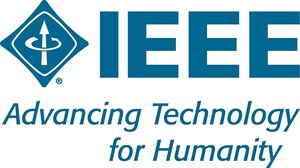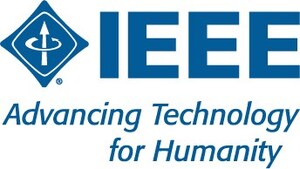
NEW YORK, Oct. 22, 2013 /PRNewswire/ -- Science, Technology, Engineering and Math (STEM) fields are traditionally known for their defined concepts. However based on insights from top educators and members of IEEE, the world's largest technical professional organization dedicated to advancing technology for humanity, technology integration in STEM education is helping boost innovation and creativity in classrooms.
(Logo: http://photos.prnewswire.com/prnh/20130603/NY24347LOGO )
"We now have instant access to more information, tools and technology than we've ever had. That access allows people to create in ways than we couldn't have imagined just a few years back. Students have more power to follow their interests and passions to shape their education themselves," said IEEE and IBM Fellow John Cohn. "Professors and students in STEM fields can benefit significantly from this accessibility, and as an engineer it is wonderful to see how the technology we've helped create is helping to create better future engineers."
"Flipping" the Classroom
The Maker Movement, Internet videos, Massive Online Open Courses (MOOCs) and other similar technology resources are altering the structure of teaching in the classroom. Because engineering is finite, technology enables students to learn STEM standards on their own and now, use class time to discuss creative application.
"There is only one right answer to the amount of electrical current flowing in a circuit," said William Webb, IEEE member and visiting professor at Surrey University. "It is ideal for engineering and other STEM fields to use online courses or distance learning for these concrete facts, so teachers can facilitate creativity and innovation in the classroom through valuable collaborative time."
Adding a Social Element to Science
Technology is also providing new forums for engineering students to connect and collaborate with influencers and their peers. The discussion-centric nature of social networks is attractive to STEM students and helps inspire new ideas. Free and widely available networking platforms, like Twitter, provide students with direct access to experts they wouldn't normally have a chance to interact with. Progressive educators are also utilizing outside teaching sources to break up the monotony of traditional lecture-style lessons, including video lessons on YouTube that mimic the classic lecture experience, but are available to anyone who wants to watch them and give an expert perspective typically reserved for smaller groups of students.
"When it comes to sharing and diffusing knowledge, forums allow students to pose questions and share points of view during the learning process," said IEEE member and PhD student at the University of Salford, Antonio Espingardeiro. "Inevitably, students end up engaging more easily, learning and answering the questions posed by themselves and other colleagues. These STEM conversations, when well calibrated, could produce astonishing results and contribute significantly to solving some of the world's biggest problems. "
The Influence of Tradition
With all of the extra information and educational material available, one might think that the college degree of today is bound to change or even become obsolete. However, education and engineering professionals believe that employers will still require the traditional college degree. It will always be necessary for a graduating student to have the standard certification that a traditional degree signifies. The complementary knowledge that comes from the variety of class offerings available via technology will serve as a bonus on a resume, and will give future engineers a wider knowledge base to be innovative from in their careers.
"Recruiters tend to default to looking at degrees earned and experience gained," said Kevin Curran, IEEE Senior Member and professor of computing and engineering at the University of Ulster. "Technological courses and virtual classrooms are not a threat to traditional college-based learning, but instead institute a healthy balance between what is taught though human interaction versus electronically. They can offer relevant, specific training in niche areas, which will always be a helpful option for students looking to learn outside the classroom."
#IEEEinClass With John Cohn
IEEE is hosting a Twitter chat with IEEE and IBM Fellow John Cohn on October 29, 2013 at 1:00 PM ET. Educators and students are encouraged to join to speak with John about his thoughts of the future of STEM education, innovation and creativity.
About John Cohn
John received his undergraduate degree in Electrical Engineering at MIT and earned a Ph.D. at Carnegie Mellon University, and has a passion for STEM education. He works in Corporate Technical Strategy at IBM and was a cast member on the Discovery Channel's technical survival reality show "The Colony."
About IEEE
IEEE is a large, global professional organization dedicated to advancing technology for the benefit of humanity. Through its highly cited publications, conferences, technology standards, and professional and educational activities, IEEE is the trusted voice on a wide variety of areas ranging from aerospace systems, computers and telecommunications to biomedical engineering, electric power and consumer electronics. Learn more at http://www.ieee.org.
Media Contacts:
Andrew Corcione
Finn Partners for IEEE
212-583-5844
[email protected]
Fran Tardo
IEEE
212-419-7750
f.tardo@ieee.org
SOURCE IEEE







Share this article